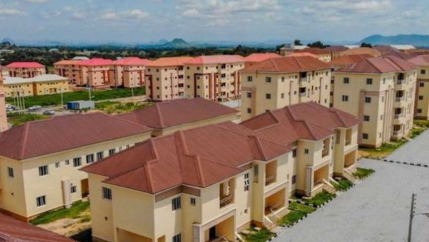Tenants across major Nigerian cities, particularly Lagos, Abuja and Port Harcourt, are facing escalating hardship in the rental market as complaints mount over alleged exploitation by some landlords and estate agents. In Lagos, widely seen as the epicentre of the crisis, securing a modest apartment increasingly resembles a punishing ordeal marked by inflated costs, opaque charges and unregulated agent practices.
Prospective tenants report that agency and legal fees, which are legally capped at ten percent of annual rent in Lagos, frequently exceed statutory limits. In numerous cases, the combined ancillary fees now match or surpass the rental value itself.
In many working-class neighbourhoods, a two-bedroom apartment that previously rented for approximately N1 million annually now commands as much as N3.5 million. Yet beyond rent, tenants say they are burdened with additional payments for agency, legal, caution and maintenance fees that can add more than N1.5 million to upfront costs.
Lagos Residents Share Costly Rental Experiences
Chidinma Samuel, a single mother living in Egbe, recently secured a one-bedroom apartment for N350,000 per year. However, she disclosed that she was compelled to pay an additional N300,000 in agency and agreement charges, almost doubling her total outlay.
Another resident, Kingsley Odor, recounted a similar experience when he attempted to rent a three-bedroom flat in Surulere. Although the annual rent was N3.5 million, he said the agent demanded an extra N1.2 million in fees, bringing the total to N4.7 million. Odor described the situation as “unbelievable,” noting that he was unable to proceed with the transaction due to the unexpected financial demands.
Odor further alleged instances where agents inflated rental prices beyond the landlord’s stated amount. He recalled a case where a landlord disclosed a rent of N2.7 million for a property, but the agent attempted to raise it to N3.6 million, with the property owner reportedly refusing to intervene.
Data from Nigerian Property Centre, a property listing platform, indicates that rents in high-demand Lagos neighbourhoods now attract combined ancillary fees of over N1.5 million for apartments priced between N3.5 million and N4 million annually. These charges typically cover agreement, commission, caution deposit and service fees.
Market Analysts Cite Weak Oversight, Housing Deficit
Industry experts attribute the worsening trend to weak regulatory enforcement, a severe housing deficit and unprofessional conduct among intermediaries in the rental market. Lagos, which faces a reported housing shortfall running into millions of units, has long struggled with rising accommodation costs driven by rapid urbanisation and insufficient affordable housing supply.
Policy interventions such as the Lagos Tenancy Law of 2011, the Lagos Home Ownership Mortgage Scheme (LagosHOMS) and the Lagos State Real Estate Regulatory Authority (LASRERA) were designed to protect renters from predatory practices. Nonetheless, tenants contend that inadequate enforcement has enabled exploitative behaviour to persist.
New Legislation Underway
Authorities in Lagos are reportedly developing new legislation aimed at strengthening tenant protections and curbing excessive charges by agents. The proposed reforms are expected to reinforce existing laws, tighten regulatory oversight and hold violators accountable.
Stakeholders argue that meaningful enforcement will be essential if new measures are to provide effective relief for renters. Without firm action, they warn that the rental burden will continue to push low- and middle-income earners into precarious housing conditions.
Conclusion
With agency fees rising sharply, housing shortages mounting and enforcement gaps widening, renters in Nigeria’s major cities face growing vulnerabilities in the accommodation market. As legislative reforms advance, the efficacy of government action will be tested by its ability to rein in exploitative practices and improve access to affordable rental housing.




